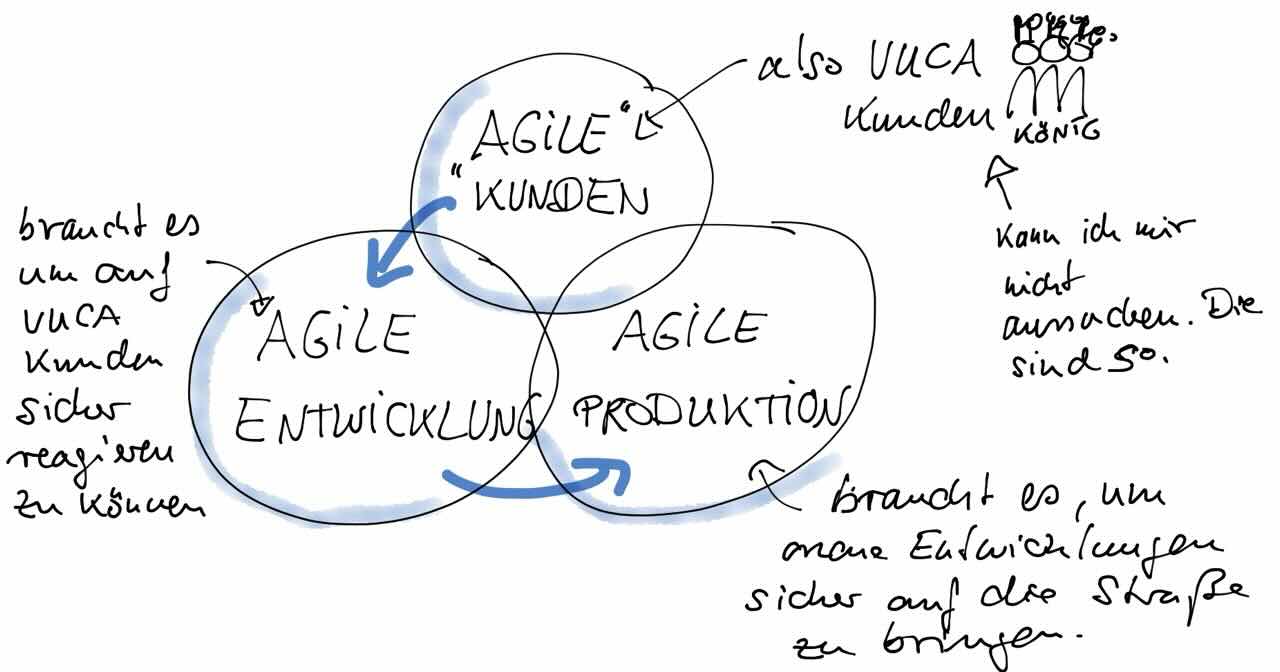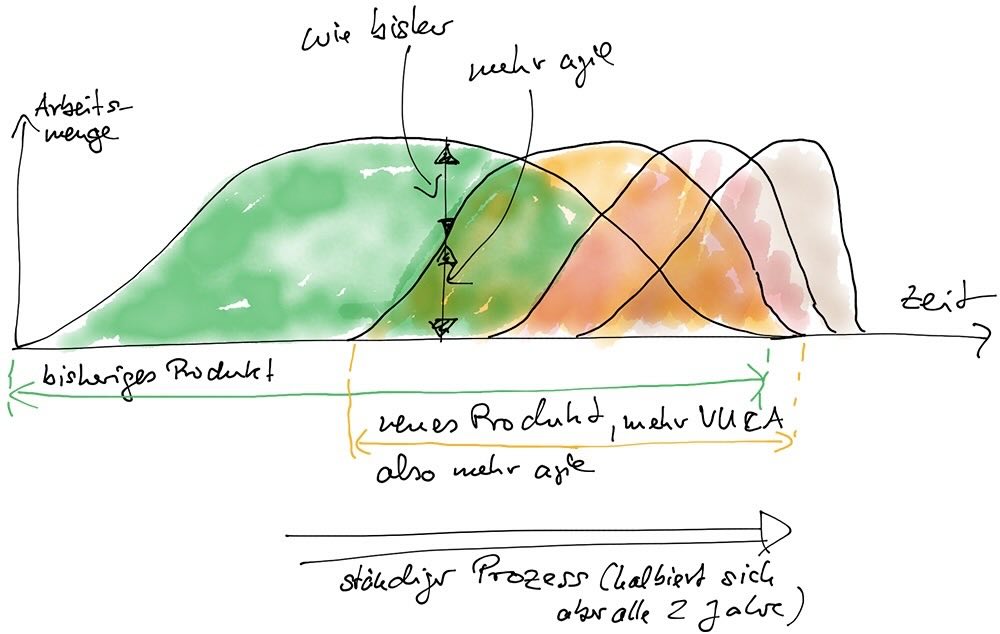"Not everything has to be agile in a company. There may be departments, products or projects where we don't need it. We have to decide on an individual basis."
"Nah, that doesn't work."
"Why?"
"I can't run a company according to different principles and values. It tears us apart as an organization when we work together according to different corporate cultures."
"But don't we already have different cultures?"
"Yes, as a result of change processes, or country cultures. As a company, however, I have a basic culture across all these cultures, a common understanding that defines us as an organization. I don't build in any predetermined breaking points."
"Yes, one area agile, one classic, I can see that doesn't work well. But shouldn't every employee be able to decide whether agile is necessary or not?"
"If I have incorporated agile solutions such as agility into my options for thinking and acting as something positive - and also apply them - then that is agile. Agile doesn't mean that I apply it to everything, but that I have added agile ways of thinking and acting as a valid option in my actions."
"I can go along with that. But aren't there areas in the company where agile ways of thinking and acting are not necessary at all, i.e. never occur?"
"Agility is first and foremost the current answer to the question of how we can deal with a VUCA-world. And everyone has that question."
"Wait a minute. What was VUCA?"
“VUCA stands for volatile, uncertain, complex and ambiguous. It refers to an environment that moves quickly, holds surprises in store and often does not allow any clear conclusions to be drawn."
"Oh, you mean our world right now..."
"Yes, and that "VUCA"This is not a new topic - the product life cycle of products halves every two years. We have to constantly think about how to deal with this. 'Agility' is the current name for the latest technologies. We'll look again in 10 years' time."
"So, you say that everyone has the VUCA challenge, and always has, and the current answers have been given the name 'agile'."
"Yes."
"But does everyone really have this challenge? Doesn't production, for example, simply have to work more efficiently instead of changing?"
"I believe that market requirements do not stop at production. And if on the market side VUCA comes in, then it ends up affecting everyone. I have a picture here that the production manager at e.go once painted:"
"e.go has agile customers (i.e. customers with rapidly changing, uncertain, surprising and ambiguous wishes). This also means that product development must be agile in order to react to this. But it also means that production must be agile in order to bring new developments to the (production) line in short cycles."
"Ok, I can see that for new products. But what about old products?"
"Well, they don't run forever. At some point, the life cycle of the product comes to an end. And with new products and a shorter product life cycle come new technologies to work with. VUCA to deal with it. For years. The current name of the child is 'Agil'. But in order to keep the current VUCA-No product can avoid shortening life cycles, the only question is when it will happen, not if."
"You were talking about products. Is everything a product? What about services? Does VUCA also apply there?"
"Well, first of all, a service is also a product, at least according to Duden. Services also have customers, and services are changing just as much - I'm thinking of newspapers, video stores and so on. And then you could ask whether the VUCA world also applies to charitable organizations. But they also live in today's world and are subject to change."
"So that means: agile meets everyone?"
"Yes. You could also say: VUCA affects everyone. This is our time. Of course, I can decide whether to do something when it hits me. But it will affect me. And this renewal, which we call 'agile' these days, is an ongoing process."



Write a comment